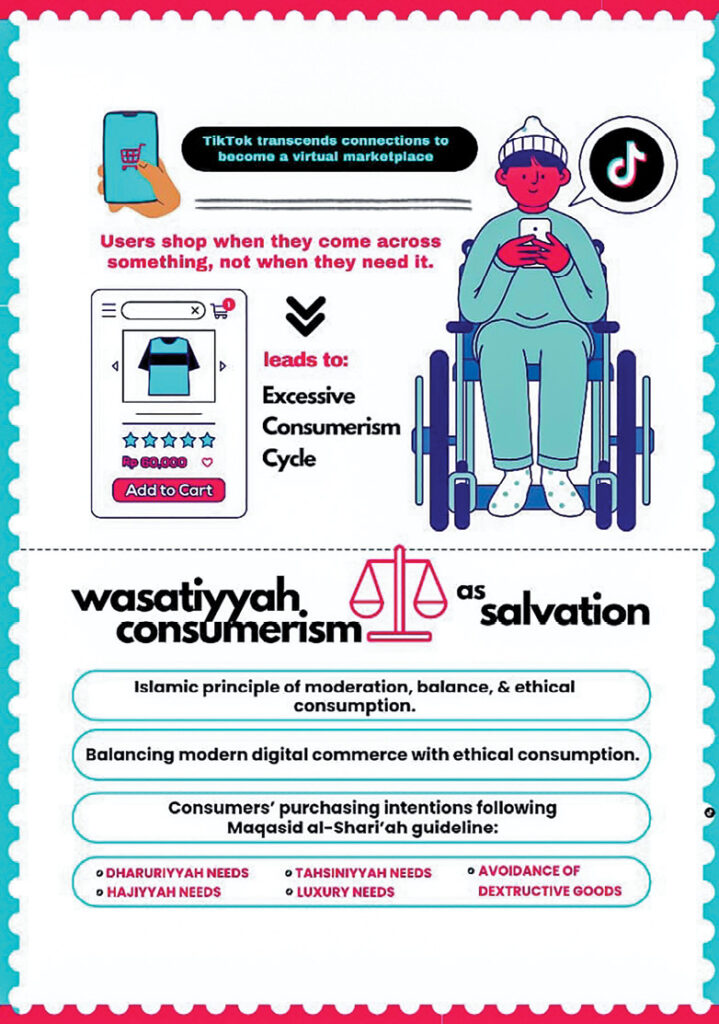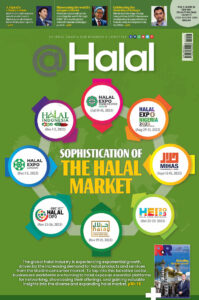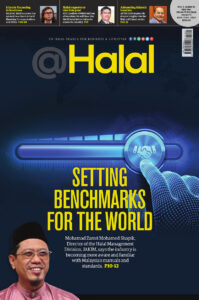
The never-ending cycle of desire and acquisition contributes to excessive consumerism


By Putri Abda Kamalia and Yumi Zuhanis Has-Yun Hashim
TikTok, recognised for its short-form videos and trend-focused content, has become a global hub for entertainment and social interaction.
The platform’s recent introduction of TikTok Shops has elevated its status, turning it into a virtual marketplace where users seamlessly transition from content consumption to product acquisition.
Leveraging TikTok’s algorithmic prowess, the platform offers a personalised shopping experience that has the potential to trigger impulsive purchasing decisions.
Chevalier’s survey results indicate that most TikTok users shop when they see something on the platform rather than when they need something.
TIKTOK’S PROWESS IN PERSONALISED CONSTANT STREAMING
In the dynamic realm of modern social media, the objective extends beyond connecting people to transcending those connections. TikTok Shops have emerged as a dynamic force in the vibrant world of e-commerce, translating digital trends into tangible purchases.
TikTok shopping offers a platform for discovering unique products through engaging content. It provides a visually appealing way to showcase items, making the shopping experience more attractive and enjoyable.
TikTok shopping lets creators share genuine reviews, giving users valuable insights before purchasing. The platform’s algorithm tailors recommendations based on user preferences, enhancing the chances of discovering products aligned with individual tasks.
While the seamless integration of shopping features adds a new layer to the user experience, concerns about contributing to excessive consumerism have been raised. Not everyone is pleased with the app’s transformation into a virtual mall, as articulated in McNeal’s article.
The effortless shopping experience it provides is not without risks. McNeal highlights statistics such as the app’s 47.6 billion views of the #tiktokmademebuyit hashtag, 92 per cent of TikTok users taking action after seeing a product on the app.
The constant stream of product endorsements, viral challenges, and selected trends creates an endless pursuit of the latest and most wanted items, promoting a culture of immediate satisfaction.
This never-ending cycle of desire and acquisition contributes to excessive consumerism, fostering a waste culture that frequently ignores unchecked consumption’s environmental and social consequences.
As a result, the TikTok Shop ecosystem can become a part of an unsustainable cycle in which users are constantly looking for the next “must-have” item.
THE ETHICALITY OF TIKTOK SHOPPING
Looking from the ethics lens, like any form of e-commerce, TikTok shopping can be related to transparency, user privacy, and adherence to ethical business practices.
On the positive side, TikTok shopping offers transparency through clear and honest communication about products, prices, and policies, helping users make informed decisions.
TikTok also offers an accessible platform where small businesses and independent creators can participate, thus promoting inclusivity in the marketplace.
On the downside, the nature of TikTok’s short-form content may encourage impulsive buying decisions, potentially leading to regrettable purchases. As with any online platform, personal data handling and protection could also be an issue, highlighting the need for users to take precautions and be cyber-smart at all times.
Ultimately, the ethicality of TikTok shopping lies in how businesses and creators conduct themselves on the platform, respecting user trust and ensuring fair and honest practices.
Meanwhile, users should exercise discernment in their purchasing decisions.
WASATIYYAH CONSUMERISM, A SUBSET OF ISLAMIC CONSUMERISM
When confronted with the influence of TikTok Shops on consumer behaviour, Wasatiyyah Consumerism can offer a solution to ensure one upholds his standing as a responsible and ethical consumer.
Wasatiyyah consumerism can be positioned as a subset of Islamic consumerism alongside Halal Consumerism (a concept where the supply and demand for products and services are reciprocal and interconnected between the consumer, products/services and manufacturer/service provider) (Ramli and Jamaludin, 2011) and another emerging model of Sejahtera Consumerism (a circular model of which consumerism activities are grounded on a sustainable platform) (Abdul Razak, 2021).
Several underlying concepts in Islamic Consumerism include:
i. consumers are deemed rational when they spend their incomes to maximise their material satisfaction at par with their spiritual satisfaction,
ii. consumers should lend priority to benefits (maslahah) instead of utility satisfaction to fulfil limited want, and,
iii. based on shari’ah-abiding principles, consumers have complete liberty in using an item of goods or services to attain prosperity in life, but the use is confined to the customs, rules and regulations determined by Allah s.w.t. (Hanapi et al., 2019).
In contrast, the conventional economic philosophy designed societal consumerism to be separated from religion, rendering traditional consumerism inclined towards the physical and materialistic aspects without relating it to spiritual and moral values.
To this end, Hanapi et al. (2019) argued that conventional consumerism is deemed unsuitable for Muslim consumers and those seeking more meaningful consumption.
STRIKING A BALANCE WITH WASATIYYAH CONSUMERISM

Wasatiyyah can be interpreted as “the justly balanced character” of Islam and the community of Muslims as a whole (Muhammad Kamal Hasan, 2013). Allah exhorted in the Quran:
“And thus We have made you a medium (just) nation that you may be the bearers of witness to the people and (that) the Messenger may be a bearer of witness to you; and We did not make that which you would have to be the qiblah but that We might distinguish him who follows the Messenger from him who turns back upon his heels, and this was surely hard except for those whom Allah has guided aright; and Allah was not going to make your faith to be fruitless; most surely Allah is Affectionate, Merciful to the people. (Quran, Surah Al-Baqarah, 2: 143).”
Wasatiyyah itself is a guiding principle deeply rooted in Islamic teachings. Wasatiyyah, which translates as moderation or balance, encourages people to find a harmonious balance in all aspects of their lives, including consumption.
Wasatiyyah Consumerism, as defined by Hanapi in a 2017 article, promotes mindful consumption, ethical choices, and social responsibility. It encourages people to consider their needs, distinguishing between desires and necessities, and fostering a deeper connection with their possessions.
Aligned with sustainability and ethical trade principles, it advocates for a marketplace where consumers actively support businesses committed to social and environmental responsibility. For Muslims, implementing this approach is viewed as achieving goodness and seeking Allah s.w.t’s blessings.
Hanapi (2017) further described that the Wasatiyyah Consumerism could be practised following the guidelines of Maqasid al-Shari’iah where one can deliberately rank their intention to purchase based on the levels of dharuriyyah needs (fulfilling basic needs of a human being), hajiyyah needs (additional needs to facilitate life), tahnisiyyah needs (absence of these would not cause distress to human life), luxury needs (items or elements not needed for comfort rather they are acquired for prestige or showing-off), or to the other extreme, dangerous or destructive goods (that can harm consumers or society).
PRACTICING GOOD CONSUMERISM GUIDED BY WASATIYYAH CONCEPT
Putting in mind the goal to achieve moderation in consumption and steered by the guidelines of Maqasid al-Shari’ah, one can learn and practice good consumerism following these tips:
• Research products: Before making a purchase, conduct thorough research. Look for positive and negative reviews to get a comprehensive understanding of its quality and suitability.
• Verify information: Cross-check product information provided on TikTok with other sources. Ensure that claims and features are accurate and do not solely rely on influencers’ endorsements.
• Consider long-term use: Evaluate whether the product aligns with your needs in the long run. Avoid being swayed solely by trends or short-lived viral content.
• Check seller credibility: Ensure the seller or brand is reputable and adheres to ethical business practices. Look for customer feedback and reviews about the seller’s reliability.
• Understand return policies: Familiarise oneself with the platform’s or seller’s return policies. Knowing the terms and conditions can be crucial if the product doesn’t meet expectations.
• Mindful consumption: Resist impulsive buying. Reflect on whether the product is a genuine need or if trends drive the desire to purchase. Practise conscious consumption to reduce unnecessary purchases.
• Support ethical brands: Support brands that prioritise ethical sourcing, sustainable practices, and fair labour conditions.
• Protect personal information: Be cautious about sharing personal information. Only provide necessary details for transactions and ensure the platform prioritises user privacy.
EMBRACING THE MIDDLE GROUND
Wasatiyyah Consumerism’s strategy for combating excessive consumerism is to embrace a middle ground, striking a balance between the conveniences of modern digital commerce and the timeless principles of ethical consumption. Individuals can responsibly use TikTok Shops, making informed decisions that align with the principles of Wasatiyyah Consumerism rather than outright rejecting technology or giving in to unchecked consumerism.
The looming potential for excessive consumerism becomes clear as TikTok Shops redefines the intersection of entertainment and commerce. Wasatiyyah Consumerism principles, on the other hand, offer a promising alternative, guiding individuals toward a balanced and mindful approach to consumption.
One can take advantage of the benefits of modern technology while developing a more sustainable and harmonious relationship with the material world by incorporating Wasatiyyah principles into our digital interactions and shopping habits.
The path of moderation and balance illuminates a more conscious and ethically driven future when navigating the waves of digital consumerism. –
Putri Abda Kamalia and Yumi Zuhanis Has-Yun Hashim are from the International Institute for Halal Research and Training (INHART), International Islamic University Malaysia (IIUM).









